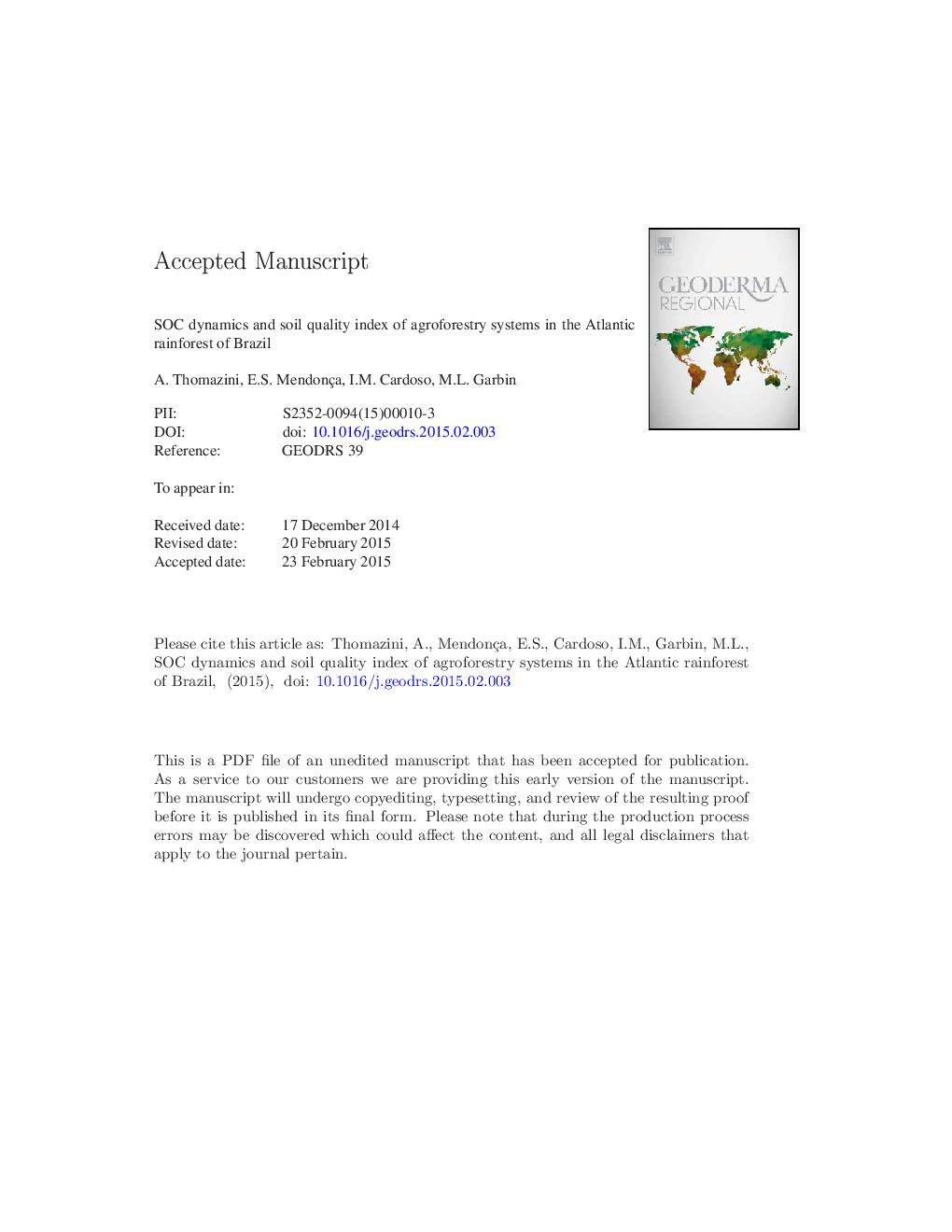| Article ID | Journal | Published Year | Pages | File Type |
|---|---|---|---|---|
| 6364113 | Geoderma Regional | 2015 | 38 Pages |
Abstract
Land cover change and implementation of different management practices can greatly affect the global carbon (C) budget and soil quality. The objective of this study was to quantify the effect of different management practices under representative agroforestry and full sun coffee systems on (i) soil organic matter and CO2-C emissions in dry and rainy seasons and (ii) to determine which management system of coffee is the most effective for improving soil quality in the Atlantic Rainforest Biome. A plot of 300 m2, divided into three subplots of 100 m2 each, was established in three sampling sites: an agroforestry coffee system (ACS), a full sun coffee system (FS) and a native rainforest (NR) (chosen as reference site of soil conservation). Soil sampling was carried out at five different depths (0-5, 5-20, 20-40, 40-60 and 60-100 cm) for soil chemical and organic matter characterization in each subplot. CO2-C emissions, soil temperature, moisture and microbial biomass C were measured four times in one year. The soil quality index (SQI) was evaluated with a principal components analysis (PCA) to compare soil quality classes among the selected sites. ACS tended to has the highest soil C content (19.8 g kgâ 1) in the 0-5 cm soil layer. FS tended to has less C and nitrogen (N) stock values and elevated metabolic quotient. The CO2-C emissions at the ACS site decreased 1.93 Mg CO2-C haâ 1 yearâ 1 when compared to the FS system. An overall trend of lower labile C was recorded up to 40 cm depth in the FS system (36% less). The ACS provided continuous input of labile organic matter fractions to the soil by litterfall contributing to a continued incorporation of soil C. The results indicated that CO2-C emission, soil temperature, metabolic quotient, C/N ratio, labile and soluble C were the most important soil quality indicators, reflecting the general biological properties of the soil. Based on the SQI values, ACS is the most suitable management of coffee, since it preserves soil quality. Management strategies that guarantee a continued and diversified input of organic matter enable the following: (i) increased C soil storages, (ii) the stabilization of the microbial biomass C, (iii) a reduction in C loss through CO2-C emissions and (iv) the best indices of soil quality. These are crucial targets in order to restore soil quality in the Atlantic Rainforest Biome.
Related Topics
Physical Sciences and Engineering
Earth and Planetary Sciences
Earth-Surface Processes
Authors
A. Thomazini, E.S. Mendonça, I.M. Cardoso, M.L. Garbin,
